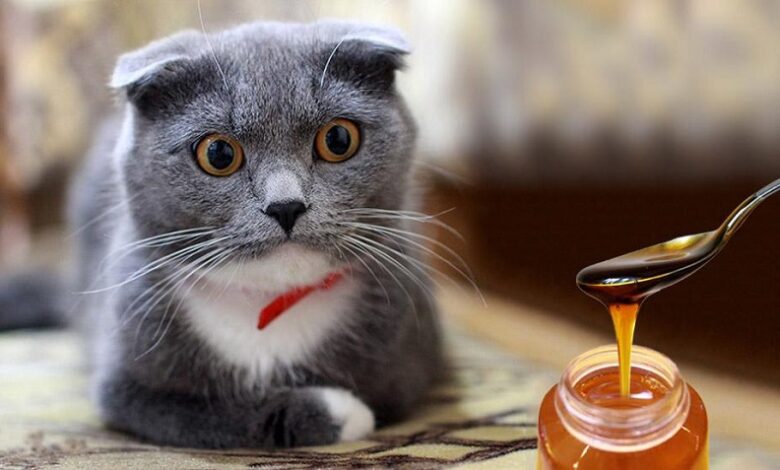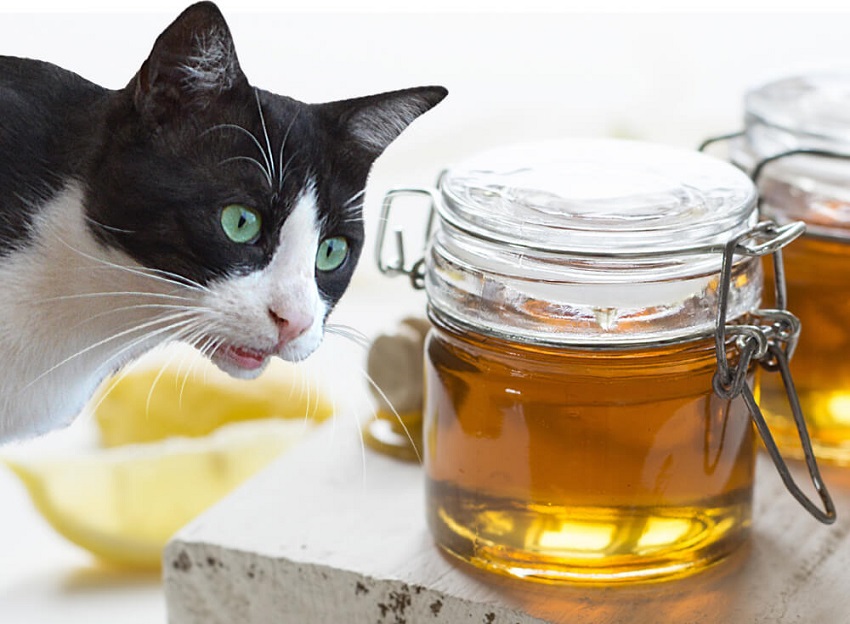Can Cats Eat Honey? Unraveling the Sweet Mystery

We all know that cats can be finicky eaters, but as a responsible pet owner, you might wonder if it’s safe to share a taste of your honey with your feline friend. Honey is a natural sweetener enjoyed by humans for centuries, but can cats indulge in this golden goodness as well? In this comprehensive article, we’ll delve into the world of feline dietary preferences, exploring whether cats can safely consume honey, potential benefits, and any associated risks. So, let’s embark on this sweet journey and find out if honey is a treat or a taboo for our furry companions! This article is provided by fruitnfood.com
Understanding the Feline Diet: Carnivores at Heart
Before we dive into the specifics of cats and honey, it’s crucial to comprehend the essence of a cat’s diet. Cats are obligate carnivores, meaning their bodies are designed to thrive on a diet primarily composed of meat. Unlike omnivores, cats lack certain digestive enzymes necessary for breaking down plant-based foods effectively. This characteristic makes their diet quite distinct from that of humans and other animals.
Cats and Sweetness: An Unusual Affair
As carnivores, cats aren’t naturally drawn to sweet flavors. In the wild, their diet primarily consists of prey animals and doesn’t include sugary substances like honey. Their taste buds are wired to detect and savor the flavors of protein-rich meats. So, when you offer honey to your feline companion, don’t expect the same enthusiastic response you might receive from offering a piece of meat. Discover can cats eat pistachios.
Is Honey Safe for Cats?
In moderation, honey is not considered toxic to cats. However, it’s crucial to exercise caution and understand that honey isn’t a necessary part of a cat’s diet. If your cat accidentally licks a tiny bit of honey from your fingers or a plate, there’s no need to panic. The small amount is unlikely to cause harm. Nevertheless, it’s best to avoid intentionally feeding honey to your cat.
Potential Benefits of Honey for Cats
While cats don’t require honey for their nutrition, some pet owners believe that honey may offer certain health benefits for their feline companions. However, it’s essential to remember that these potential benefits are not scientifically proven and should not replace a proper feline diet.
1. Soothing Properties
Honey is renowned for its soothing properties, both for humans and, to some extent, for animals. Some pet owners use honey to alleviate minor throat irritation or to soothe their cat’s cough. However, it’s essential to consult with a veterinarian before attempting to use honey for any medicinal purposes.
2. Energy Boost
As a natural source of simple sugars, honey can provide a quick energy boost for cats. In some cases, pet owners may use honey as an occasional treat during times when their feline friend may need an extra pick-me-up.
Potential Risks and Considerations
While honey may not be toxic to cats in small amounts, there are still some risks and considerations to keep in mind:
1. Sugar Content
Honey is high in sugar, which is not an essential part of a cat’s diet. Cats lack taste receptors for sweetness, and their bodies are not designed to handle large amounts of sugar. Excessive sugar intake can lead to obesity and dental issues in cats, just as it can in humans.
2. Botulism Concerns
Infant botulism is a rare but severe condition caused by a bacterium called Clostridium botulinum, which can sometimes be found in honey. While adult cats are generally more resistant to this bacterium, it’s best to avoid feeding honey to kittens or cats with compromised immune systems.
Alternatives to Honey
Instead of honey, there are several cat-friendly treats available in the market that cater to your feline friend’s dietary needs and preferences. These treats are specially formulated to ensure they meet your cat’s nutritional requirements and are free from ingredients that could be harmful to them.
In conclusion, while honey is not considered toxic to cats in small amounts, it’s best to avoid feeding it to your feline companion intentionally. As obligate carnivores, cats have specific dietary needs that should be met through a balanced and appropriate diet. If you have any concerns about your cat’s health or diet, it’s always wise to consult with a qualified veterinarian.
Remember, the health and well-being of our furry friends should always be a top priority. Offering love, care, and a proper feline diet will ensure a happy and healthy life for your beloved cat!




